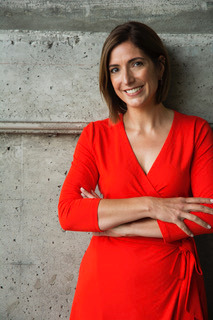Lois Crowe, program manager Strategic Planning and Implementation,
As a socially accountable medical school, we believe that working together with our community is our best way to address the priority health concerns of those we are meant to serve. The Faculty of Medicine has embedded social accountability as a key component of its strategic plan “Leading Innovation for a Healthier World.”
But while the concept of social accountability has been well described as an important part of undergraduate and postgraduate medical education, its application to basic science research initiatives has been less clearly articulated. How do we make social accountability relevant for our students who work in a lab with mice or a cell line? How do we identify their community? Who are their stakeholders?
To address these questions, we teamed up with Dr. Alain Stintzi, Vice-Dean Graduate Studies, to create a more socially accountable graduate program.
To be inclusive, we extended these concepts beyond the traditional spheres of patient engagement, patient-oriented research and participatory research projects. We incorporated additional dimensions, such as the role that communities play in fundraising and outreach; the strategic planning efforts of funding agencies and academic institutions; and the ethical standards that hold research institutions and researchers accountable and serve the public’s interests.
To bring these issues to life, we added two new components to MED8166: Professionalism and Professional Skills, a compulsory course for all students enrolled in master’s or doctoral programs at the Faculty.
Introducing students to social accountability
The first course component was a didactic and interactive three-hour session to introduce students to the concepts of social accountability, which was held November 27, 2020.
Distinguished panellists included: Dr. Chris Kennedy, Chair, Board of Directors for the Canadian Council on Animal Care (CCAC); Dr. Gillian Booth, Scientist, MAP Centre for Urban Health Solutions, Li Ka Shing Knowledge Institute of St. Michael’s Hospital in Toronto; Ms. Lianne Laing, Executive Director, University of Ottawa Heart Institute and former TV broadcaster; Dr. Barbara Vanderhyden, Senior Scientist, Cancer Therapeutics Program at the Ottawa Hospital Research Institute, co-founder of Let’s Talk Science and Science Travels, and founder of the Aboriginal mentorship Program at uOttawa; and Mr. Rob Boyd, Oasis Program Director, Sandy Hill Community Health Centre.
Following the session, more than 100 student participants reflected on their learning in a Mentimeter poll. Their 'aha' moments included the insights that volunteering is a form of social accountability; that patients make important contributions to research; and that everything is intertwined — there is no "me," but always "we."
Integrating social accountability into research proposals
The second course component, which will take place in the winter term, is an experiential learning activity in which students earn credit for social accountability endeavors, Students develop funding proposals to enhance the relevance of their own research, or to initiate a project that incorporates the community and stakeholder perspective, as part of the TOGETHER (The Ottawa Greater Engagement Towards Health Equity Research) awards program launched by the Office of Social Accountability.
In addition to giving them hands on experience in social accountability principles, this activity serves as an accessible introduction to the grant application experience. As part of this program, select students will be awarded up to $1,000 to complete their projects.
By integrating the concepts of social accountability into the graduate curriculum, we hope that graduate students will learn about the societal benefit of scientific research and the importance of community and stakeholder engagement.
We are excited to have embedded social accountability into the graduate curriculum in a way that stimulates the development of research questions that serve the needs of our communities and other stakeholders. This new approach will foster effective interactions with other health professionals and promote the development of “change agents”— graduates who prioritize the good of society in the execution of their roles as scientists.
We are collaborating with the uOttawa Centre for Research on Educational and Community Services (CRECS) to evaluate this program.

